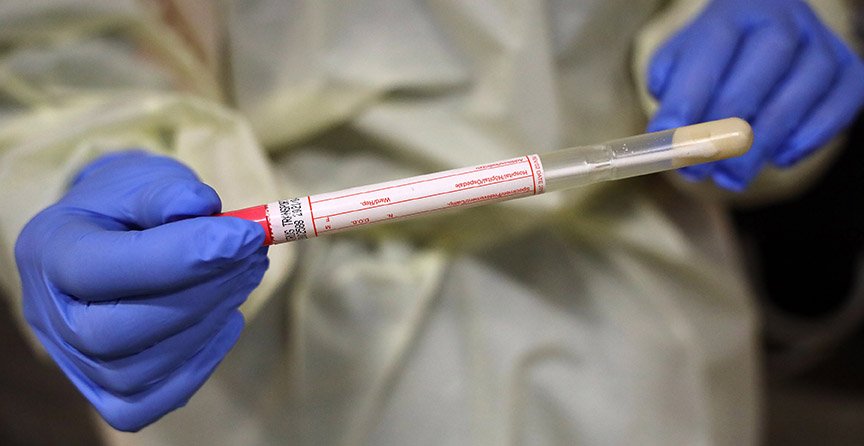The public messaging and understanding around the role of Covid-19 testing has become “increasingly confused”, the HSE national director of health protection warned in a June paper.
“In particular there is a growing perception that a test is a control strategy and a negative test result is in some way ‘protective’. There is a need to develop clear communications on what a test is for, what it is not for, and what results mean,” outlined the 3 June paper authored by Dr Lorraine Doherty, National Clinical Director, Health Protection, HSE.
A test for SARS-CoV-2 provides information at a single point in time and a result of ‘RNA not detected’ for any person at one point in time “does not reflect or indicate the level of ongoing risk”, it outlined.
“A ‘not detected’ result should not be used to facilitate a ‘return to work’, a ‘clearance for travel’, ‘provide assurance of risk’, or be interpreted as an indication of ‘protection’ either for the person themselves or their family and/or work colleagues.”
The paper, which was prepared for the national public health emergency team (NPHET), set out recommendations on a strategic approach to Covid-19 RNA/PCR testing, excluding healthcare workers who were the subject of a separate paper.
The Covid-19 testing strategy should be supported by a “multifaceted communications strategy” that includes population-based messaging to communicate clear information about the role of testing in the management of the pandemic.
It should also be made clear that Covid-19 testing has no role in the decisions to re-open services for vulnerable groups, including addiction and detoxification services.
The paper also noted that NPHET had recommended testing of close contacts identified through the contact management programme and this had been included in the testing approach from 18 May.
“All close contacts of confirmed cases of Covid-19 will be offered and recommended to have testing. IT solutions must be in place to support testing strategies, eg, automatic scheduling of follow-up tests for close contacts whose initial test is reported as ‘SARS-CoV-2 not detected’. There must be a robust process in place for data linkage – linking close contacts to index cases. Data should also be available regarding the clinical presentation of close contacts who test positive for SARS-CoV-2 (symptomatic vs asymptomatic).”
Concerns have since been raised by NPHET in regard to the high number of close contacts of confirmed cases not coming forward for arranged tests.
According to notes of NPHET’s meeting on 16 July, the “high numbers of close contacts not attending for testing continues to be cause for concern with the ‘did not attend’ (DNA) rate for Day 0 testing at 25 per cent and increasing to 47 per cent for Day 7 testing.
“The HSE advised that it is exploring ways to improve data input with improved processes to allow for the faster transfer of data between the CRM [customer relationship management case tracker] and CIDR [computerised infectious disease reporting] systems. A communications campaign focusing on the need for close contacts to engage with the testing process, and to reinforce the need to seek a test and self-isolate if you present with even mild symptoms was agreed.”
Comment was awaited from the HSE at press time.













Leave a Reply
You must be logged in to post a comment.